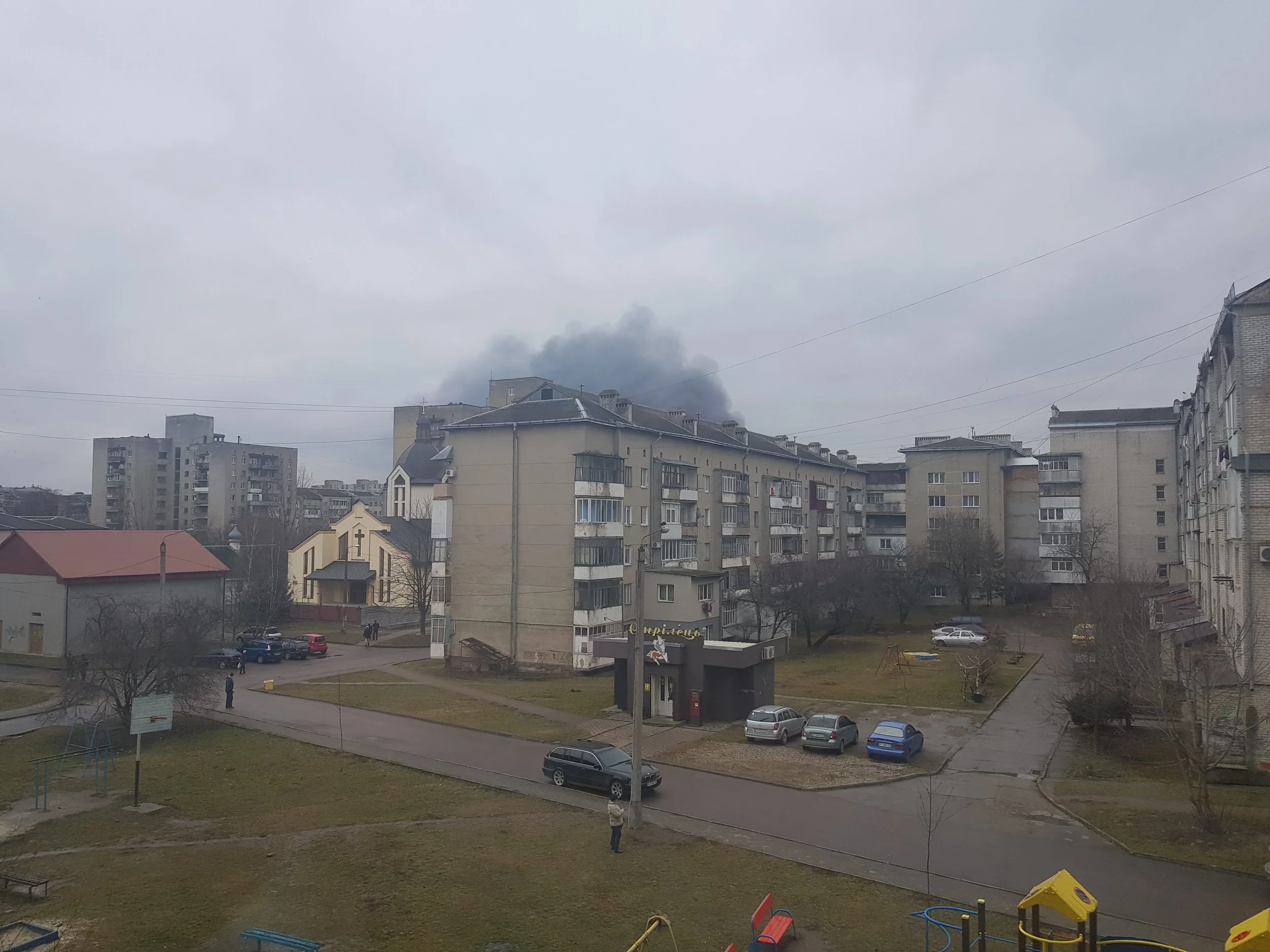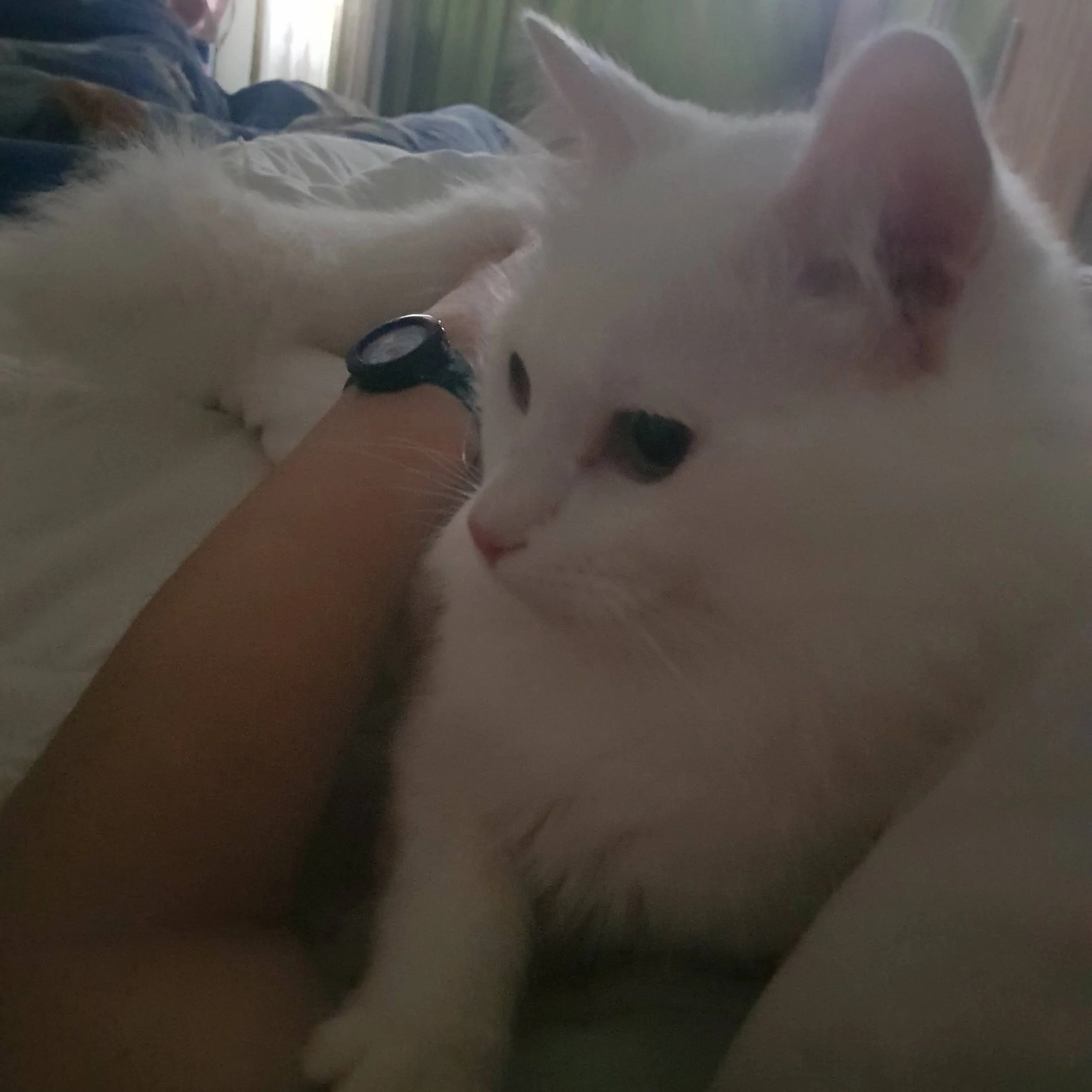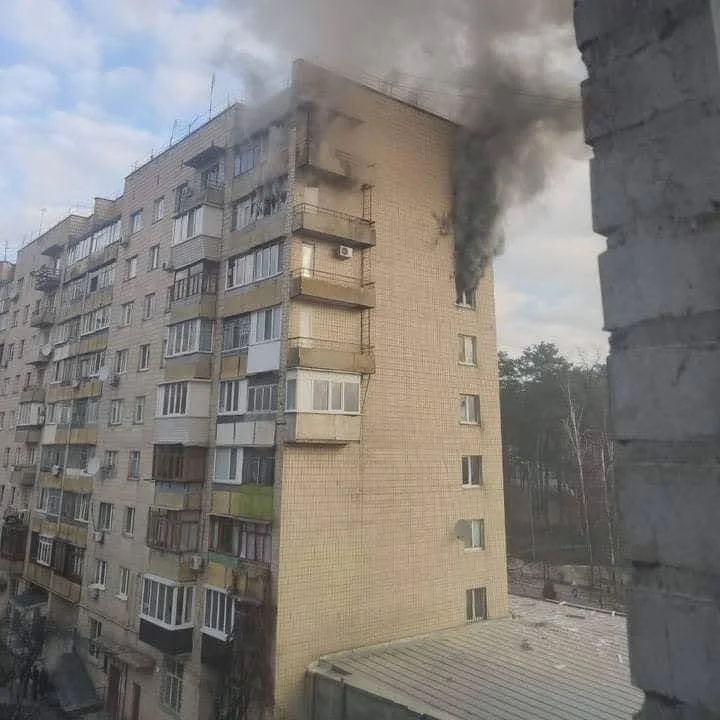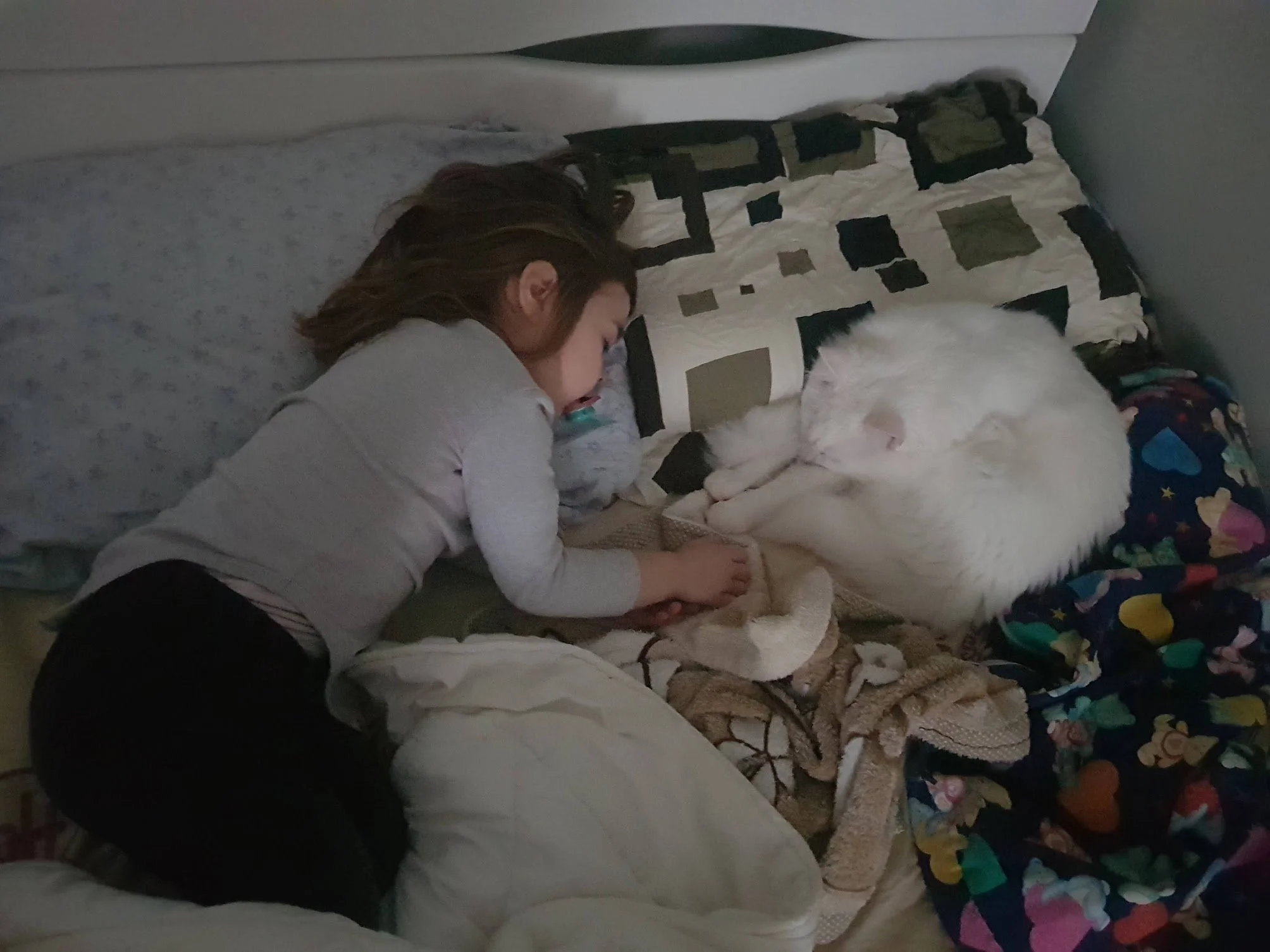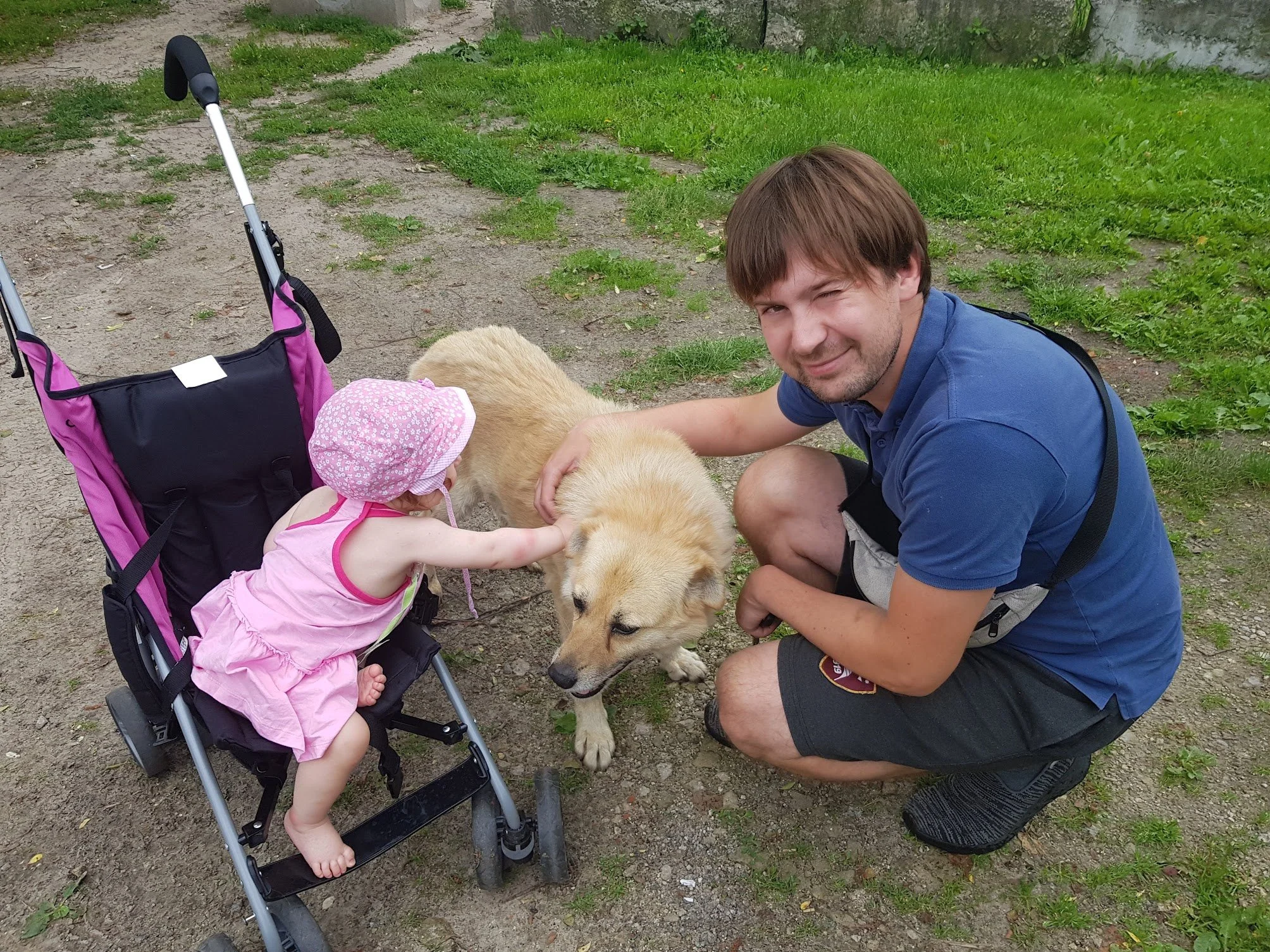Escaping Bucha: Alina’s Testimony and the Power of Narrative Empathy in the War in Ukraine
By Steve Lemeshko
At the time of publishing, this is the 1183rd day of the Russia’s full-scale invasion of Ukraine. The interview below is with Alina Lizunova, a survivor of the Russian invasion. Alina fled Ukraine and now lives in Pullman, Washington, where she organizes community support for Ukraine in the twin rural towns of Pullman, WA, and Moscow, ID—home to Washington State University and the University of Idaho. This interview documents the human cost of mass atrocities through personal testimony. Alina’s story is not only a firsthand account of war and displacement but also an example of how narrative empathy can break through indifference and keep distant tragedies from fading into statistics.
In addition to her own experience, Alina also shared the memories of friends and family members who were killed during the war. Out of respect for those lives, we are publishing those tributes separately in a companion piece.
The unabridged interview transcript has been edited for flow and clarity.
First day of the war. Photo courtesy of Alina Lizunova.
This was the local airport, already burning from a Russian bomb. We had just woken up. I didn't believe the war started until I pulled open the curtain and saw this smoke, and I realized that the worst had started. Here, you can see some people, but in an hour, there was no one. It’s very scary to see a sunny day with no people at all and everything closed—no fuel, no cash, no pharmacies. That was just the beginning.
Would you be comfortable sharing what your life was like before the war? This was the first day of the war, right? And perhaps after that, we can talk about your journey to the U.S.
My peaceful life... it was really happy. I had a great job and a good salary. I felt free. I could travel. I was also really active in all the reform work after the Revolution of Dignity. We had a lot of corruption, and I was fighting it. My main project at that time was to create a park with playgrounds for kids, near the oak forest where I lived. Some of the oak trees were 300 years old, amazing, huge trees. When you walked among them, even the bird sounds were different. I was constantly working with the city government, going to court hearings against developers who wanted to tear it down. I was busy every day.
I lived in Bucha. Just one day before the war, my life was normal. I had taken a photo that morning in bed: my baby Kira was beside me, our small kitten Jike curled up near us. I don’t know why I took that photo. I never take pictures of the room like that. But I’m glad I did. It turned out to be the last photo of my peaceful life.
Last day of peaceful life. Photo courtesy of Alina Lizunova.
After I took this photo, we went on a short vacation to the Carpathian Mountains, just three days. I left our keys with our neighbor and asked him to feed the cat. And the next day, the war began. There were shootings in our street already because it leads directly to the Hostomel Airport, the one the Russians were trying to take, so they could push troops into the capital. Everything near Kyiv was under attack.
Alina's kitchen in Bucha, photographed a couple of weeks before the war. Later, a Russian sniper occupied it, stacking the children’s table on the dining table under the window to control the road to Hostomel airport in the nearby city. Photo courtesy of Alina Lizunova.
At that moment, I wasn’t seeing photos of bodies in the streets yet. But for me, it was already the scariest day of my life. I was in shock.
I already knew what war looked like. The war started in 2014, and I had been to Mariupol before. I saw the results of the shelling. I saw the tanks. I helped civilians fix up destroyed apartments. So everything I had feared for years… it was suddenly in front of me. But nothing had happened to us, yet.
Still, for the first few hours, I couldn’t do anything. I remember trying to pour milk into a glass for my child, but I just stood there, and the milk overflowed onto the table, then onto the floor. My small kid was sitting nearby, watching me. I only realized what I was doing when the milk carton was empty. I had been in some kind of trance. I called my grandma. I called my dad. I called my coworkers. Nobody knew what to do. Some people were already trying to leave the cities, but traffic jams were everywhere. Tanks and civilian cars on the same streets, moving in different directions.
We had nothing with us, just my ID and my child. We had planned for only a vacation, not a war. And while we were standing there, news kept coming in. People were talking about the Russian shelling of another city. That’s when I realized: they could start bombing where we were at any moment. That’s when I knew I needed to run. I remember I jumped into the car and started driving directly to the border. My parents were still in Kyiv, but the Russians were moving so fast. I was afraid to drive toward Kyiv, afraid I would run out of gas on the road. I hoped the closer we got to the border, the more likely we would find fuel, or shelter, or anything.
On the second day of the war, as Alina was driving toward the border, an apartment building across from her house in Bucha burned. Her neighbors hid in the ground-floor commercial space all day and night, unable to go outside because of the shooting. Photo courtesy of Alina Lizunova.
And when we crossed the border, I couldn’t believe it. It’s not dangerous anymore; it’s safe. The gas stations were open. Stores too. People were just… living their lives, the same kind of life I had been living just one day earlier. I remember thinking: how can this border change everything? Who decided that this line on a map would mean safety? What if the Russians keep going? Who says they’ll stop at Ukraine?
But for now, we had made it.
So once you reached the border, you were in Europe, in relative safety. What happened next?
We stopped in a small town in Romania just across the border. I couldn’t go any further that day. I walked through the streets, holding my baby, crying. I didn’t want people to see me cry, so I kept checking around, wiping my face, trying to act normal. But I couldn’t continue; my body was too full of stress to even drive.
Then some locals approached me. They could see I wasn’t from there, and they asked if I needed help. I told them I was from Ukraine, and from that moment, everything changed. They started bringing things. One woman said, “Would you come back here in an hour?” And when I came back, she handed me bags—new clothes for my baby, food, everything. These were people who clearly didn’t have much. Some of them worked at supermarkets. But they still wanted to help. I knew I had money, but they needed to give something. Saying “no” would’ve hurt them. I couldn’t do that. So I accepted it all: their bags full of baby clothes, medication, and food.
In Sighetu Marmației, Romania, a supermarket cashier gifted two large packs of new clothes to Alina’s daughter Kira the day after they crossed the border. Photo courtesy of Alina Lizunova.
After that, I felt strong enough to continue. I drove to Bucharest, where my company had an office. I knew some people there, and one of my coworkers had a friend—someone I’d never met—who offered his one-room apartment for us to stay in. I said yes, immediately. I started working again, remotely. Honestly, the only thing that kept me grounded in those first weeks was my job. Having something to do and some tasks to focus on. I still kept checking the news every hour. I was terrified the Russians would reach Kyiv. My whole family was still there.
My grandmother was 86. She had never asked for a doctor in her life, but suddenly she didn’t feel well. Kyiv had street fights, and the city was under curfew. You weren’t allowed to leave your home at all, day or night. Hospitals weren’t taking civilians. Ambulances weren’t running. The only thing my family could do was sneak out, quickly, for water or food when it was safe. But my grandmother’s condition worsened. She stayed like that for a month, sleeping, slowly dying. By the time my father found a doctor who could come, it was already too late. Nobody knew what happened to her exactly, and nothing could be done. I lost her. She was the last grandmother I had, and I loved her very much. But I was in another country, in another world, with a baby in my arms, and I couldn’t do anything, so I just called my father and heard the desperation in his voice. That was my first loss in the war.
Another thing that hurt so much was my kitten, who had stayed behind in the apartment. When I left Bucha, I gave the keys to our neighbor Vitaliy and asked him to feed her. My neighbor tried to keep feeding her, even as water and gas were shut off. But then I couldn’t contact him. I knew he had moved to a safer part of the city and had just left his house. I later learned that he was captured and detained by Russian soldiers while trying to bring borscht to an elderly woman who had stayed in our building.
He was seventy-eight. He had no phone with him, no ID. That saved him. The Russians would check everything—your messages, your photos. Even having a photo of a tank or writing something like “Russians are near” could get you executed on the spot. So he was smart, and still, they locked him up. Russians set up makeshift prisons everywhere. In my building, too, two hundred apartments, and they picked one. He was held there without food, without anything, for three days. He came back to his wife, but still in the occupied city, and I lost connection with him again. But I was texting him all the time—information about possible green corridors, civil evacuations—because I knew they didn’t have the Internet, so they wouldn’t get this information from anywhere.
Then, after one month, I got a call. He’d made it out. He told me he had received all my messages. He and his wife had walked out of the city. They couldn’t carry anything but three cats, and one of them was mine. Now she’s in Kyiv, with my mother. She listens to my voice on the phone. Every time I call, she comes and sits there, listening until the end. She remembers me. She remembers my daughter’s voice, too.
This is how, before the war, Alina’s daughter Kira would sleep with Jike, the cat that her neighbor Vitaliy rescued when he escaped the occupied city. Photo courtesy of Alina Lizunova.
Out of two hundred apartments, only a couple of domestic animals were saved. People fled, locked the doors, and the Russians broke them later. Animals ran wild, and we don’t know what happened to most of them. There was a dog who lived near us, in a private house. He died, trapped inside. When the Ukrainian army retook the area, they found him. His name was Friend (Дружок). They could see he had only missed survival by a few days. I still feel pain when I think about him, like I lost a human being. Before the war, I used to think: if something happens and we have to run, I’ll save my daughter, our cat, and him. But for Friend, we were too late. So many terrible things happen in the war. We couldn’t save everyone.
Alina's daughter, Kira, and her father, together with the neighbor's dog Friend, before the war. Photo courtesy of Alina Lizunova.
One of the civilian friends I lost was Yuriy. After Bucha was retaken, they found his body. He had ten bullet wounds, two in the head and the rest all over his body. He was just a civilian. But he was well-known, active, and brave. That’s who the Russians were targeting—anyone with influence, anyone who might inspire others, anyone who refused to collaborate. Some were offered deals. Others were just executed in their homes. I lost most of my friends from Bucha.
I have a friend who was telling me, “You need to come to the U.S.” He was very supportive. When I first arrived in Romania, he drove to meet me. Helped me with my baby, bought food, and brought household things. Eventually, I applied for a visa to the U.S. I arrived in the U.S. months later. He finished his PhD; I kept working.
I haven’t been home since we left for that “three-day vacation.” The biggest dream of my life is to return. I bought tickets to fly back several times, but something always happened: someone in the family got sick, or there was news of fresh attacks. Once, I had a ticket to fly back the very day a children’s hospital in Kyiv was bombed. The rocket hit the other end of my street, near my apartment. If I hadn’t canceled that time, I would have been arriving at my apartment at exactly that moment. My apartment is still standing, but it’s not safe. When rockets are coming, you don’t always hear the alarm. Sometimes it’s just this horrible loud sound, all of a sudden. There’s no warning.
As a mom, I need to be responsible. I need to keep dreaming from here. I can help my parents. I can help the army, but I can’t risk my child’s life. This is how it is now.
Thank you for sharing this story with me. That's a very powerful story. People don't hear enough about the lives lost in Ukraine, about how horrible the war is. The war is usually portrayed as something either glamorous or not spoken of. People don't like to hear about the human cost of those horrible atrocities. And just a heads up, we'll be shifting the topic slightly.
Over time, have you noticed people around you becoming less responsive to the war in Ukraine, as if they have started to care less?
I definitely see that a lot of people around me, and I was very surprised. When I asked the people who lived near me, who had been so supportive when we first arrived and had helped me understand many things about American life, “What do you think about the situation in Ukraine?” they simply replied, “We don’t follow anymore.” I was so shocked because they knew our family.
So after that, when I talked to them, they always said, “We are so busy, so busy, so busy.” And of course, I believed them. Everybody is busy. But then I started asking myself, why are the priorities changing? When the war started, all Ukrainians were very active; all Americans were very active. Everybody wanted to help. But now? I hardly remember the last time somebody told me, even something small like, “Oh, good that you’re safe.” People just stopped saying anything. It’s like for them, the war stopped because they stopped following the news. It disappeared from TV, so they just continued to live their lives. But for people in Ukraine, this is a big tragedy. They are still burying civilians, just as they did several years ago. They are burying sons and husbands who went to the front to protect us. I can wake up and read a message from a friend whose husband has disappeared on the front line, asking how to find him. During the last major shelling of Kyiv, my mother sent me what she thought might be her final message for me and my children.
My friends from Ukraine ask me, “How can Americans not care anymore?” And I honestly tell them: sorry, most of them really do not care. Even when I speak with my Ukrainian friends and refugees, I see they are more and more focused only on their family business. They say, “Oh, I have my studies, I have my work,” and I have this feeling that they want to stop thinking about everything.
I would say that sustained interest, sustained action, and sustained help for the affected communities are some of the biggest challenges when we talk about mass tragedies. Do you feel it has something to do with people being treated as statistics? When we start to talk about people as numbers, when we hear, “Ten thousand, twenty thousand, one hundred thousand,” all of this starts to lose meaning.
For me, each ruined city is like ruining a whole world—all the people, every single one of them, all their plans, all their dreams, a safe future. So when you feel this amount of pain, it seems like you can’t count it. It’s unlimited, unlimited pain. And then they say, “OK, the second city is destroyed.” But you already feel the unlimited pain, so how much more can you feel? It can’t be more. It just stays the same. And then they say, “OK, one hundred more cities destroyed.” And you say, “Yeah, of course. That’s what they do.” It all became just statistics. In the beginning, when they killed one person, it was very scary, very hard. And now they are killing two people in Kharkiv each day, one person in Sumy, Dnipro. And people just say, “OK. One here, one there. Certified.”
So it’s totally different even for me. Today, I was at a rally, and one American told me that he couldn’t understand how Ukrainians manage such horrible news, like dozens of people killed on holidays, in city centers. And I was surprised by my own answer, but I told him: “You know, we are a little used.” I’m scrolling through my news. OK, today was very bad—they killed 35 civilians. How many kids? Three. “Oh, good, it would be worse if it were 20. Three kids, it’s so much... but not 20.” You think: how awful is this? They killed three kids. Come on. If it’s your kids, you don’t count, you don’t say, “Oh, my three kids are dead, but my two others are alive, so it’s OK.” No, it doesn’t work like this.
What you describe really connects to the concept of psychic numbing, when people emotionally shut down. You’ve worked in advocacy. What has helped you push through such a barrier?
Usually, I am trying to focus on positive personal experiences because if I just say tragic things, even personal tragic things, it’s very hard. But I have a new opinion that even when bad things happen, you can still see some light. For example, my friend who was killed in Bucha—I don’t say, “Oh gosh, the war took his life, it’s horrible.” I say, “He granted his life for us to be happy. He is my hero.” It’s a different context. It really changes how people listen.
I still try to say something positive. For example, Russians targeted the center of my city at Christmas. They destroyed a lot. However, in the cafeteria where all the windows were broken, they started working again and serving warm, very good food. So when I tell personal stories like this, it’s not only about pain. If there is also life, warmth, food, opportunity, hope, then I think people are really interested. They say, “Oh, thank you. We didn’t think about it this way. Thank you for sharing.” And this is the only method I discovered that works at all.
In my advocacy work, I was not just saying, “Oh, I am from Bucha, they killed hundreds of civilians, please help Ukraine.” I was trying again to be positive. I told stories: “We rescued a small cat from an apartment where Russians were staying. They did terrible things, but I managed to do what nobody else could. I am here now. I am free. My child is safe.”
When I was saying this, I saw in the eyes of the politicians that they were interested. And if they are interested, they will remember. If they remember, maybe in the future they will act differently, even if not immediately. For example, they will not support some anti-Ukrainian bills because they will remember the kid and cat from occupied Bucha who were saved, and they will stand with our people.
Preparing and telling those personal stories—about friends, family, cat, those you’ve lost, those who are still alive—helped push back against that numbness, and made the stories memorable. Could you talk more about what moved you to begin telling them?
When I just arrived in the small city near the border in Romania and when local people started to ask me questions because they thought I could be Ukrainian, I realized they couldn’t read our media. What they see on TV is just the horrible news. They saw reports: “Russia put 2,000 tanks; they are entering Kyiv; Ukraine is falling.” And I don’t know why, but I wanted to support them. I started to tell them crazy, funny stories about Russian soldiers. For example, there was a video where Russians targeted a monument of a tank from the Second World War. They were so stupid that they didn’t understand it was just a monument. I showed this video to Romanian people and said, “Look, we will fight them off easily.” I also remember showing videos where people just came out into the streets and blocked the tanks. Unarmed people stopped Russian tanks, these crazy, scary tanks.
I don’t know why I started to tell these stories, but I wanted to make people smile, to help them stop being so scared. Because if something bad is going to happen anyway, there is no point in spending all your energy just crying. You must act, so I was trying to help them. After that, a lot changed for me. I came to Bucharest. There were Ukrainian rallies and Ukrainian support from the Romanians, but they knew nothing about Ukraine. They thought they were helping, but it was just Ukrainian music and blue and yellow flags. I came to them and said, “Hey, why don’t you let Ukrainians speak and share their stories? It could be interesting. They could learn more.” I shared my story about Bucha. I don’t even remember what I said, but I remember all those crowds looking at me, saying, “Wow. We didn’t know this. Thank you.”
When I came to the U.S., I already understood that if I didn’t speak, Americans would never know. Nobody would support Ukraine if I didn’t share these stories, so I knew it was my duty to tell what is happening.
After Zelenskiy’s recent visit, I made some videos asking American people in the streets, “Do you support Ukraine? Can you say some words for Ukrainian people?” I posted those videos on my Facebook page. Immediately, dozens of my friends and their friends started sharing. They said, “Look! Come on. They do support us.” I felt I helped them a bit because it’s much harder to sit under rockets when you feel betrayed and alone in the world.
Would you say that the stories you’ve shared changed how people understand the war in Ukraine?
Yes, everybody understands war as something ”normal,” something you don’t want to think about. But it’s important for people not to close their eyes, pretending they live in peace and nobody is killed. And even the war is not the end. We can change this meaning. Maybe it’s the beginning of a powerful Ukraine, of a new world where free people would not be afraid of some crazy tyrant. We must build a strong world where we wouldn’t be afraid anymore. I would like it to be so.
You’ve been actively helping others understand the human cost of this war. What keeps you going? What do you want people to take away from your story, not just emotionally, but how do you act to help Ukraine?
The first motivation that pushes me the most is the memory of my friends who were killed in the war. Most of them were civilians, not soldiers, because this war targets everyone. When I think about them, I try to continue what they started. They are not with us anymore. I knew them personally, and I feel it’s now I who must continue spreading the vision of the free, peaceful world they wanted. I ask myself: Ukrainians are sleeping under rockets, and here I am in the U.S., under a peaceful sky. If I don’t have the strength to go somewhere or do something, if I slept badly and my child kept waking me up, I tell myself, “No. You must be strong.” That motivates me.
Also, I feel motivated by people when I share something. I try to find a personal approach for everybody. Life is hard and strange, so if we don’t exchange these words of support and understanding, it would be impossible to go through.
Now, the most important thing about helping Ukraine is to speak about it and keep it focused. If the U.S. stops supporting Ukraine and leaves Ukrainians alone, it would be a very big mistake. I don’t believe Europe could manage without the U.S. It’s not possible to just remove the U.S. from this fight and believe the rest will manage. If we want a peaceful world, Ukraine is the key to that peace. To do this, it is very important to speak up. That’s why we started our weekly stands, because people thought Ukraine had already won.
American democracy gives every citizen the possibility to go to their representative, to write an email, or to make a call. Democracy is something strong, and I am happy that we all can take part in it.
So we are approaching the end of our discussion. Is there anything you wanted to share that I didn’t ask? Any comments, ideas, or suggestions you want to leave our readers with?
Yes, there is one idea. Many Americans think that if the shooting stops, the war is over. But that’s not true. What Ukrainians want is not just a pause or ceasefire. They want real peace. I am really afraid of the scenario where everything goes back to “normal,” where Putin walks everywhere like the president of the world, so I can’t be silent about this.
For further reading, see the following articles:
A Professor Risking His Life to Expose Genocide in Ukraine / February 9, 2024
Portraits of Citizens in Ukraine / March 23, 2022
Rehumanizing the War in Ukraine with the “Three Names” Cards / March 2, 2024

